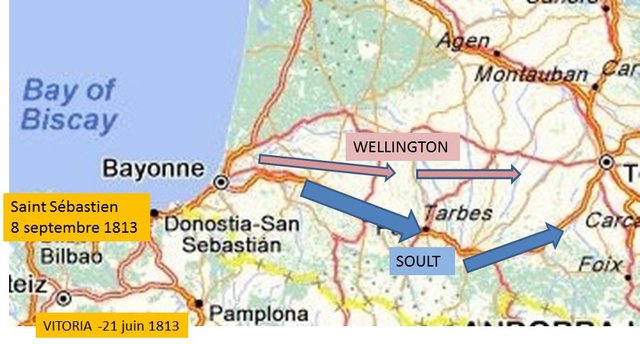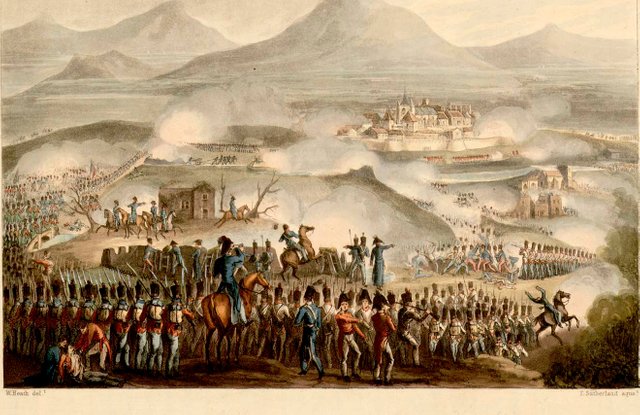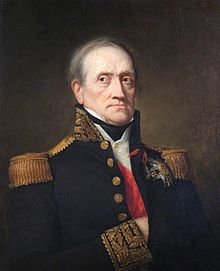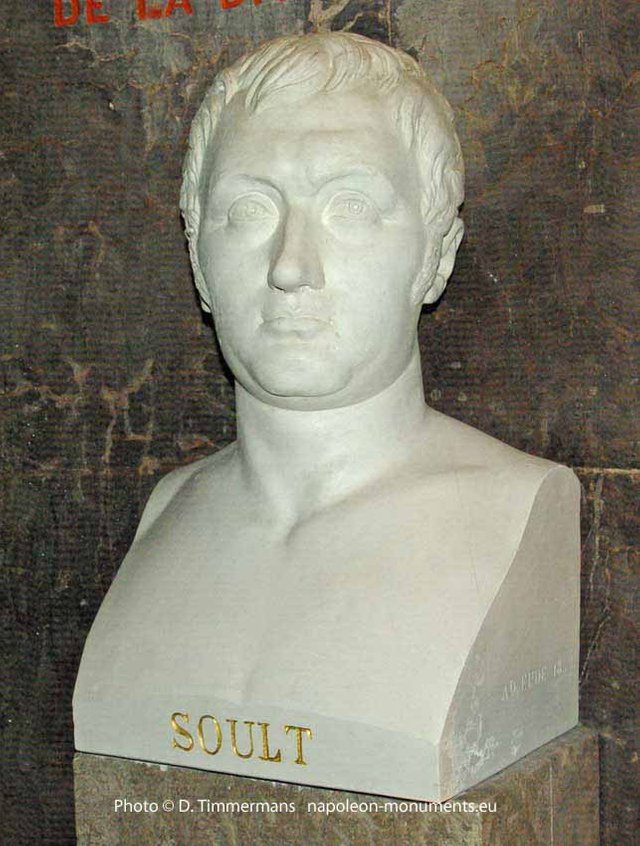GENERALS OF NAPOLEON (21) - SOULT - “The politician” (part 3)
Sent back to Spain again, will Soult be able to stop Wellington?

Soult [Credit]
Soult leaves the Emperor on the 1st of July 1813 and reaches the French town of Bayonne, near the Spanish border, on the 12th of July.
There, Soult reorders the big mess which has become of the French armies that have escaped from the defeat of Vitoria. In the record time of two weeks he manages to bring back those troops from the brink of despair and desertion and marches against Pamplona, which is a key fortress city between Spain and France. However, Soult is unable to break the defence of Wellington and must abandon Pamplona to its fate and come back to the French side of the Pyrenees with 10.000 soldiers less.
From now on, the balance of power has definitely shifted in favour of Wellington: he will always have the advantage of the initiative and of the numbers against the troops of Soult, who fights a rearguard action during the next months in the south-west corner of France.The English cross the Bidassoa, the border-river between France and Spain by October 1813. Soult desperately tries to pin down the forces of Wellington in the region, playing with a better knowledge of the territory, but without success. Worse: Napoleon keeps asking him for troops to reinforce his own campaign in the north of France against the Allies and Soult must count only on raw recruits.
Wellington was aware of the situation when he said: "I will tell you the difference between Soult and me: when he gets into a difficulty, his troops don't get him out of it; mine always do."

[Credit]
Using delaying tactics, attracting Wellington deeper and deeper in direction of Toulouse, where he hopes to join with the troops of Suchet from Catalogne, Soult is beaten at Orthez (February 1814) but manages to wrestle a last victory under the walls of Toulouse. But it’s too late: 4 days earlier Napoleon has abdicated.

Battle of Toulouse [Credit]
Soult, who has managed against all odds to maintain his field army, immediately changes of colours and proclaims high and loud his allegiance to the king Louis XVIII. As a reward he is made Minister of War… and he still is, when Napoleon comes back from Elba! First he insults the “usurper” and swears not to join him, before to turn again and to proclaim his former master “a hero”.
Napoleon pardons his Marshall and makes him his major-general. Basically, in the absence of Berthier, Soult will be in charge of raising and organizing the new army. And by June 1815, Soult is once again faced with Wellington. At Waterloo, it is said that Napoleon did not listen enough to his major-general and should have followed his advice about the tactics of Wellington. Napoleon dismisses the English as a bad general, but eventually, the bad general prevails and Soult himself must seize the horse of Napoleon and lead him away from the lost battlefield.
At the following Restauration, Soult is exiled, but will be pardoned in 1819. From then on, he will always make a big show of his royalist allegiance and eventually his efforts will pay. Minister of War under Louis-Philippe (1830-1834), he commands in 1831 he troops who will crush the Canuts revolt in Lyon, a stain on his memory. And in 1838, Soult is sent to London to represent France during the coronation of the queen Victoria.

Soult, in later life. [Credit]
There, it is said that he was very well welcomed by the English people, anxious to see the nemesis of Wellington, and even met his fellow general. The legend says that Wellington caught the arm of the man who had evaded him for so long in Spain and said: “At last, I caught you!”
Between 1840 and 1847, he is head of the government and minister of war, and after that, Louis-Philippe confers him a last honour, reviving the title of “Marechal General”, the highest honour for an officer.
He dies in 1851 after declaring himself Republican, one last change of heart for a political animal who would never say die and fought till the bitter end. Probably not the most honourable of men, but the most agile and versatile.

Sources:
He was a great leader and did everything he could to bring his army to victory.
Yes, indeed, he was one of the few generals of Napoleon who was able to stand his own far from the eye of the Emperor.
Followed, so I could review about all these generals.
Thanks! :) Unfortunately I'm almost finished with the series and covered the most interesting generals :-/ I'll do a quick recap to wrap it up though